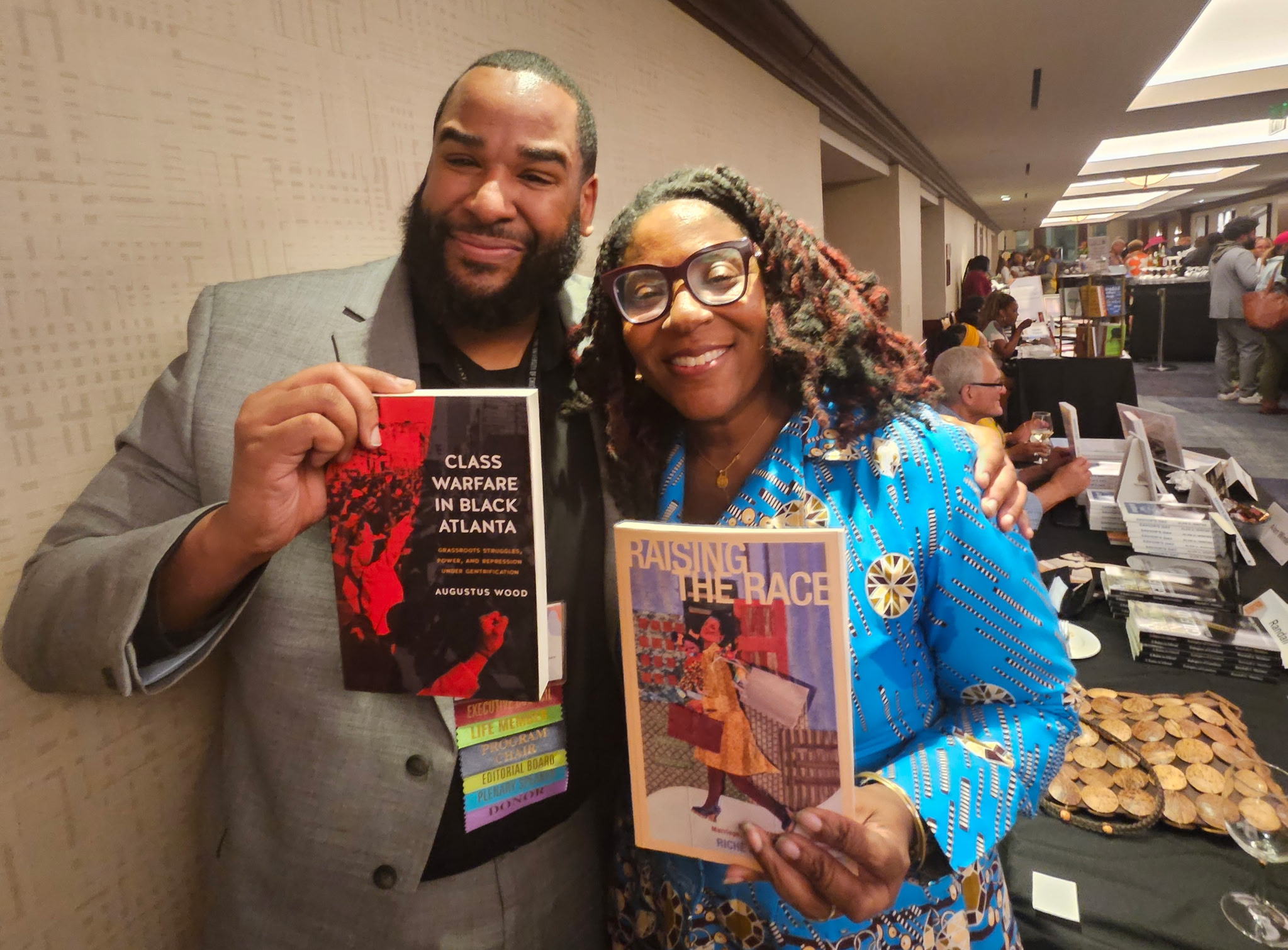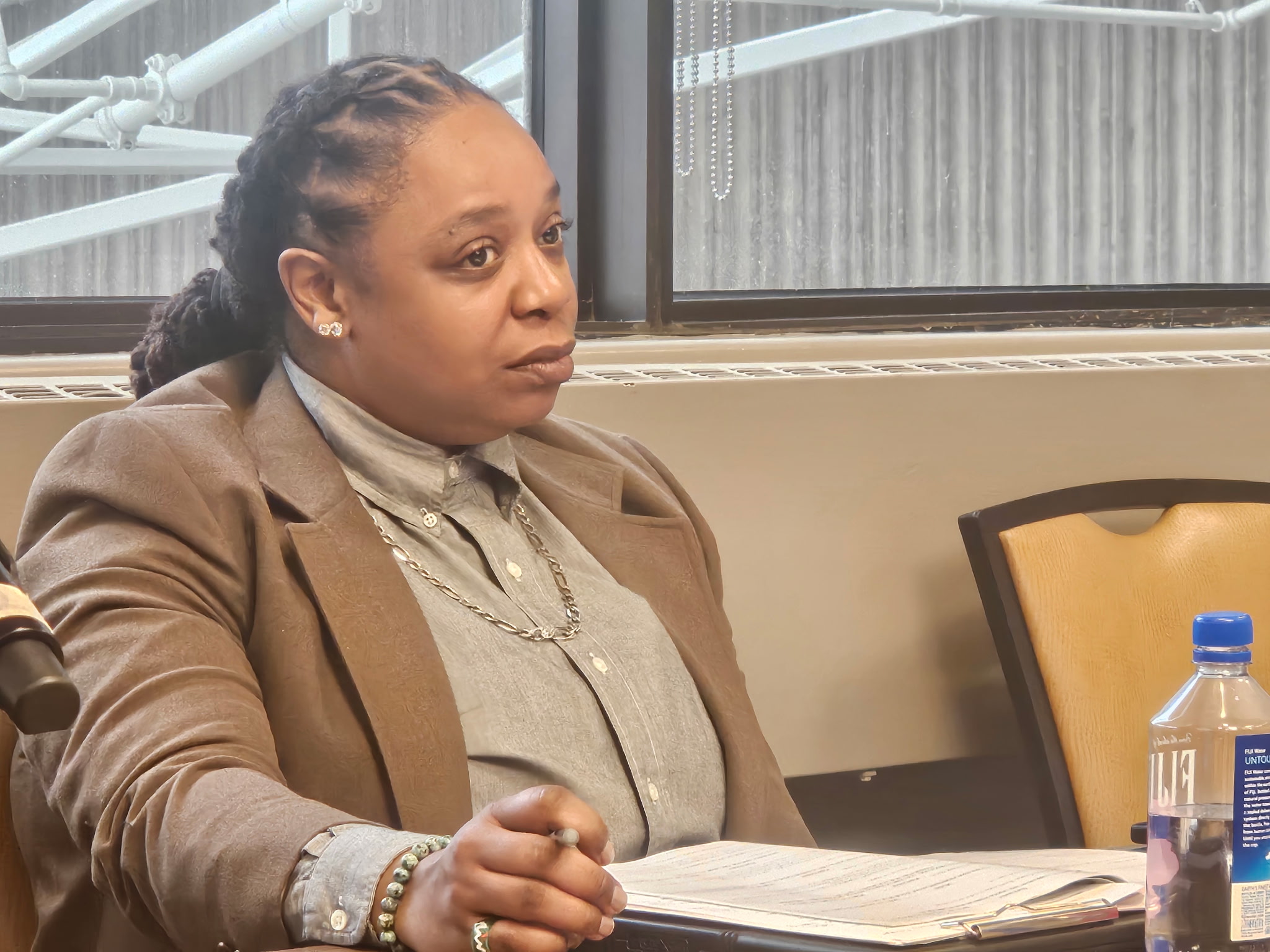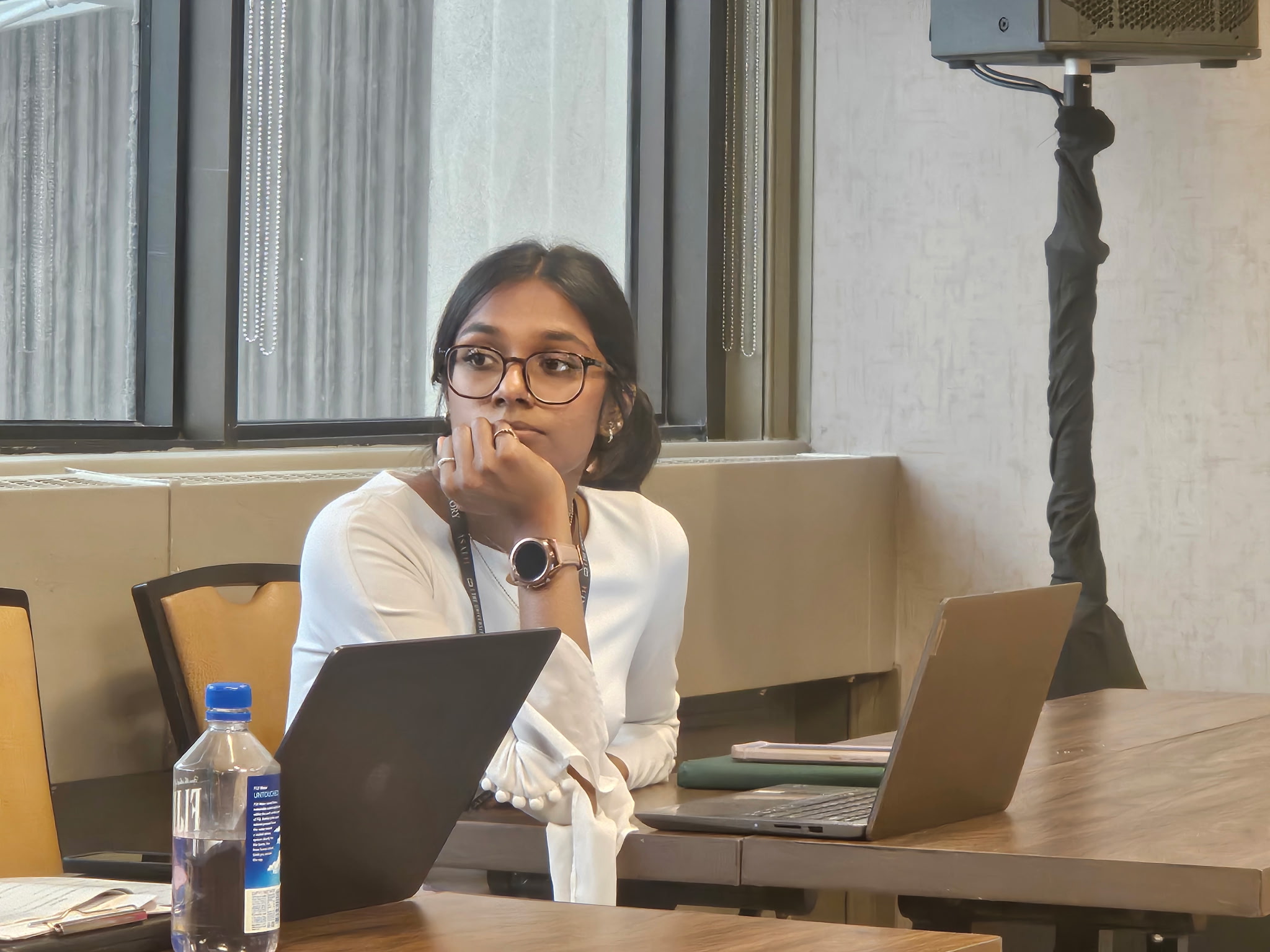African American Studies has strong presence at Association for the Study of African American Life and History (ASALH) 2025 Conference
The African American Studies Program was well represented at the 2025 Association for the Study of African American Life and History (ASALH) conference. Dr. JE Young, along with undergraduate students Victoria Peters and Chalisa Budhai, served on the “Black Strategic Mothering and (Re)productive Labor in the Afterlives of Slavery” panel, organized by Dr. Riché J. Daniel Barnes.
AFAM major Victoria Peters’ presentation, “Interrogating the History of Misogynoir,” interrogates the American history of Misogynoir. The project draws on Kimberlé Crenshaw’s intersectionality, bell hooks in her book Ain’t I a Woman, and Moya Bailey’s Misogynoir to chronicle the long history of discrimination explicitly targeted at Black women in America and how it has informed the lived realities of Black American women today. Additionally, it looks at the “myth” of Sojourner Truth, whose reproduction and labor were marketed to White American perceptions of Black womanhood. This project focuses on Black spirituality and the politics of Black labor, both of which primarily center on the stories and realities of Black women.
AFAM major Chalisa Budhai’s presentation, “Resilience, Representation, and Restoration: Intersecting Narratives of Black and Brown Women,” discusses how Brown and Black women are reserved the trope of vigor and resiliency in
which burnout and mental health issues disparage women of color more than their white
counterparts. As an unprotected class, the narrative of resiliency in the character of Brown
women undercuts healthcare access, medical research, and mental health advocacy in the
core of the community. Through the frames of the Afrocentric and Womanist intersectional
paradigm, this research dissects the history of Brown womanhood and her counterpart,
the psyche.
Dr. JE Young’s presentation, “Self-Definition in Africana Spirituality: Affirming Representations for Womanism, Black Quareness, and Black Feminist Thought,” examines how Black intellectual history demonstrates that African Americans have consistently employed the strategy of self-definition. I focus on the role of spirituality in social relationships, communication, and representation by building on the works of two major sociologists—Patricia Hill Collins and Oyèrónké Oyĕwùmí—and their approaches to self-definition and language, respectively. Dr. Young has served as the Patricia Hilliard Nunn Visiting Professor since 2024.





